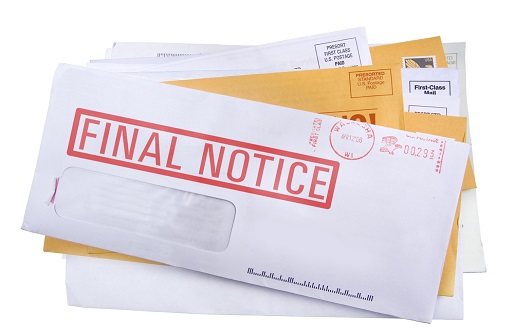Enforcement
A County Court Judgment (CCJ) is an order given by the Court, instructing the defendant (debtor) to make payment in full or by instalments as instructed by the Court. Once a County Court Judgement (CCJ) has been granted in your favour, you are then able to enforce the Judgment if the defendant does not pay the Judgment within 14 days. Similarly, if a defendant defaults on an instalment ordered by the Court, the CCJ becomes enforceable in full with immediate effect. There are various methods of enforcement as listed below which will assist you in recovering payment of the debt and the costs incurred from the debtor. Here at Chase Debt we are able to offer a range of enforcement options depending on the nature of the case and circumstances of the debtor.

High Court Enforcement Officer:
The sheriff can only be instructed if you have previously obtained a monetary judgement for over £600. Once instructed, they will make three separate visits to the property over a three-month period to attempt to recover the total amount owed. The sheriff will recover the Judgment Debt, any costs incurred in obtaining the CCJ and their own fees. At the end of the process you will be sent a report to indicate if they have been successful or not. If the sheriff is unable to collect the debt you will be charged a small industry regulated abortive fee for each address visited.
Attachment of Earnings:
An Attachments of Earnings Order will allow for the debt amount to be recovered from the defendant’s employer directly, as a deduction from their earnings. Information on the defendant’s employment is required, if this is not known we can obtain this by carrying out an employment trace. We can only apply for an Attachment of Earnings Order if the debtor is employed and not self-employed or in receipt of benefits.
Charging Order:
If the defendant is a homeowner either in their sole name or jointly, an application can be made to the Court to place an interest against their property to secure your debt. An entry will be made to the property’s title with the Land Registry stating that a judgment has been issued against the owner of the property. This charge will not be removed until the debt is settled. We can assist you through our solicitors with the application for a charging order with the Courts and registration of the Charge with Land Registry. In order to ascertain whether a debtor owns a property we are able to make a search at the Land Registry.
Third Party Debt Order:
A third-party debt order recovers the debt by freezing the defendant’s funds in a bank account and releasing them for payment of the debt. We can assist you through our solicitors with the application for this Order. This method may require a court hearing. If so we can arrange through our solicitors for you to be represented at court.
